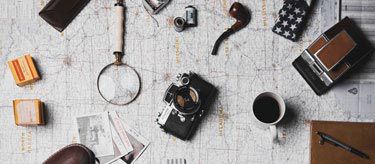Financial literacy 101: banking and budgeting
There’s a lot to wrap your head around when it comes to your finances, but a good understanding of some basic financial concepts can really take you a long way. While Canadians have received high scores when their financial knowledge was tested, many still lack confidence in their skills. A study from the Financial Planning Standards Council (FPSC) found that those who had a financial plan were better off than those without.
What is credit and why do I need it?
Simply put, credit is borrowed money that you have to repay. Your credit score is a number that reflects your credit worthiness and is an indication of your ability to repay your debts. Having good credit is necessary for things like buying a house or a car, taking out a loan or getting a credit card.
And while you might think that not using credit at all is a good thing, think again.
Building a good track record of positively managing credit shows lenders you're able to repay any debts that you incur. Without that, it's difficult for a lender to determine whether or not they should give you a loan.
Do I need a budget?
Short answer: yes. Having a budget allows you track how you're spending your money and ensures you have enough money for things like rent, groceries, bills, or saving for retirement. Creating and following a budget may be difficult, but don't worry. A budget can be as simple as listing all your monthly expenses, and you can even revise it every 6 months if anything has changed.
By writing down the things you have to spend money on (think rent, utilities, your phone bill, groceries, etc.), you'll quickly learn how much money you have left each month for spending or saving.
If you want to create a budget but you aren't sure where to start, here's a complete guide on setting up your first budget.
How do I budget for and prioritize needs vs. wants?
Between saving for retirement, education, home ownership, and day-to-day spending, money can be tight. Tracy suggests using a goal-based strategy for budgeting needs vs. wants.
A goal-based strategy focuses on your progress towards your short or long term life goals. Some of your short-term goals may include going on vacation or buying a new car, whereas your long-term goals may include purchasing a home or saving for retirement. Whatever your goals may be, using a goal-based strategy will help you prioritize.
How do I build an emergency fund?
If you want to factor an emergency fund into your budget, you can set up automatic transfers between your accounts. Typically, your emergency fund should be enough to cover at least three months your monthly expenses. Figure out how much you can afford to save from each paycheque and have that amount automatically transferred into to your emergency fund account.
---
This article is for information purposes only and is not intended to provide specific tax or other advice and should not be relied upon in that regard. Individuals should seek the advice of qualified professionals to ensure that any action taken with respect to this information is appropriate to their specific situation.


